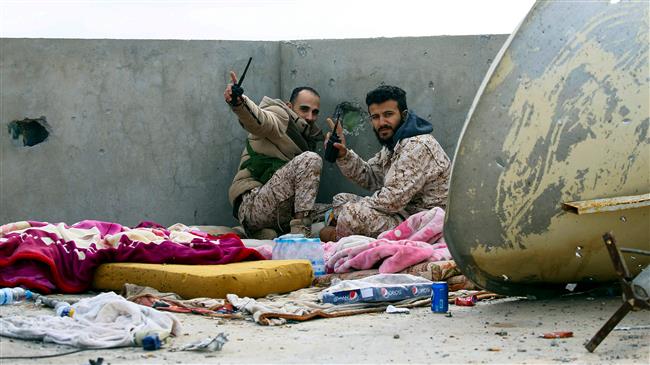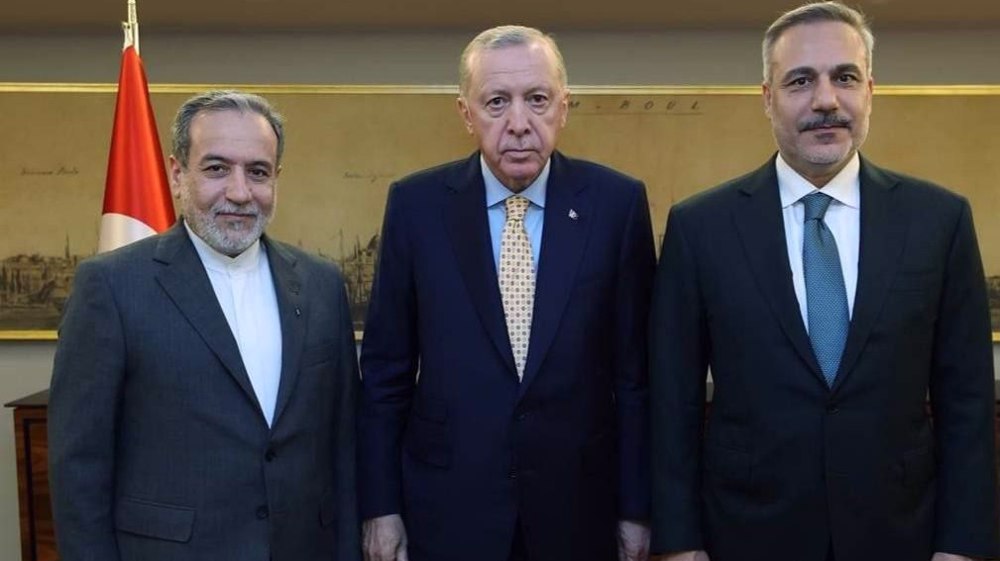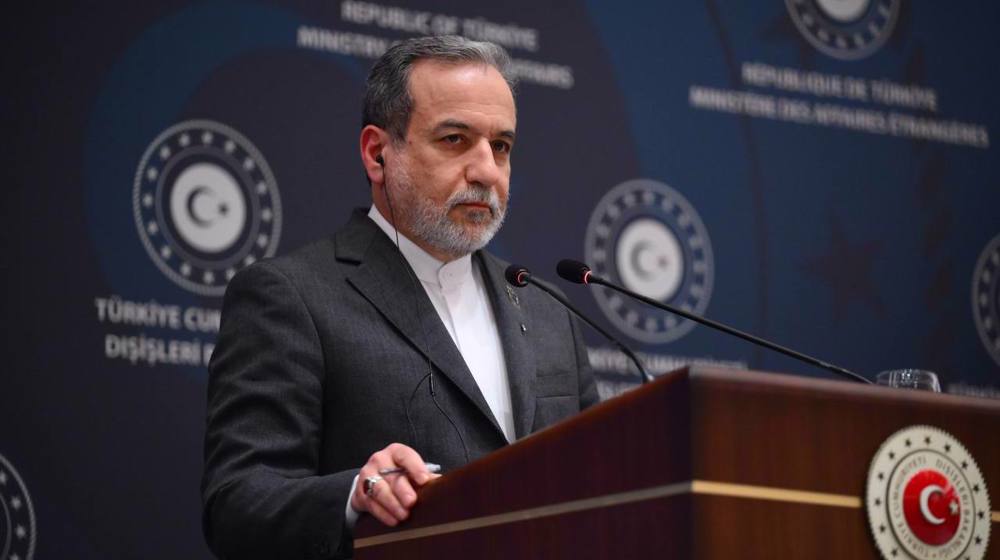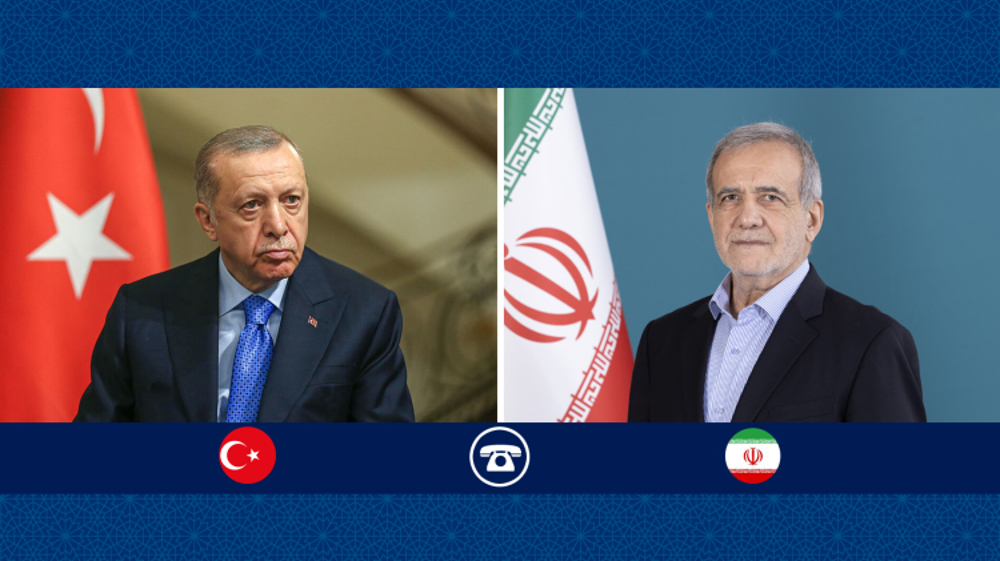Turkey deploys more militants from Syria to Libya to help protect Tripoli-based GNA: Report
Roughly 2,000 members of Turkish-backed Takfiri terrorist groups in Syria have reportedly arrived in Libya to fight on the battlefields in support of the embattled Tripoli-based Government of National Accord (GNA).
Informed sources, requesting anonymity, told Syria’s official news agency SANA that more than 1,700 Turkey’s proxies, who have been accused of war crimes and human rights abuses while fighting on behalf of Ankara in northern Syria, had recently reached the North African country to come to the aid of Libyan Prime Minister Fayez al-Sarraj in the face of a months-long campaign by his rival, renegade military commander Khalifa Haftar.
Erdogan’s regime transports more terrorists from north of Syria to Libyahttps://t.co/ZO8Yt3bXOA
— SANAEnglishOfficial (@SANAEnOfficial) January 17, 2020
The sources added that Turkish forces continue to recruit Takfiri militants in the Kurdish-populated city of Afrin and other areas in northern Syria to send them to Libya.
British daily newspaper The Guardian reported on Wednesday that some 650 fighters from Turkish-backed militant outfits in Syria are in Libya already, and a further 1,350 crossed to Turkey in January to support the Tripoli government.
Media reports said that Turkey had begun sending militants from Syria to the North African country after Libya’s GNA and Ankara signed security and maritime agreements back in late November last year on paving the way for the Turkish troop deployment.
Libya's eastern-based parliament later voted unanimously against the deals.
The accords drew the ire of Mediterranean countries, including Greece and Cyprus, which are seeking to exploit energy resources in the area.
On Saturday, Turkish President Recep Tayyip Erdogan urged the European Union to support his country’s deployment of troops to Libya in support of the GNA, if the 28-member bloc seeks to end conflict in the North African country.
“It would be a mistake of historic proportions to leave Libya at the mercy of a warlord. Keeping in mind that Europe is less interested in providing military support to Libya, the obvious choice is to work with Turkey, which has already promised military assistance,” Erdogan said in remarks in a column published on the Politico website.
He added, “We will train Libya's security forces and help them combat terrorism, human trafficking and other serious threats against international security.”
Opinion: Europe will encounter a fresh set of problems and threats if Libya’s legitimate government falls https://t.co/pUyuqjzph2
— POLITICO (@politico) January 18, 2020
The Turkish leader then warned Europe about new threats if it fails to back Libya’s “legitimate” government, stating that Takfiri militant groups such as Daesh and al-Qaeda “will find a fertile ground to get back on their feet.”
Erdogan has said Turkey would not refrain from “teaching a lesson” to Haftar if his eastern-based forces continue attacks against the Tripoli-based GNA.
“If the putschist Haftar's attacks against the people and legitimate government of Libya continue, we will never refrain from teaching him the lesson he deserves,” the Turkish president said in a speech to his AK Party legislators in parliament on Tuesday.
“It is our duty to protect our kin in Libya,” he said.
Erdogan said Turkey had historical and social ties with Libya, asserting that Haftar would have taken over the entire nation if Ankara had not intervened.
“The putschist Haftar did not sign the ceasefire. He first said yes, but later, unfortunately, he left Moscow, he fled Moscow,” Erdogan said.
“Despite this, we find the talks in Moscow were positive as they showed the true face of the putschist Haftar to the international community,” the Turkish president added.
On January 2, Turkey's parliament approved a bill to deploy troops to Libya.
Parliament Speaker Mustafa Sentop said at the time that the legislation had been passed with a 325-184 vote.
Libya plunged into chaos in 2011, when a popular uprising and a NATO intervention led to the ouster of long-time dictator Muammar Gaddafi and his execution by unruly fighters.
The North African country has since been split between two rival administrations based in the east and west amid a conflict drawing increasing involvement from foreign powers.
According to the latest UN tally, more than 280 civilians and roughly 2,000 fighters have been killed since Haftar launched his offensive in April to seize Tripoli. An estimated 146,000 Libyans have been displaced.
Earlier this month, German Chancellor Angela Merkel said Libyan peace talks would be held in Berlin on January 19, adding that Libya's warring parties would need to play a major role to help find a solution.
Israeli keeps killing more Palestinian civilians in Gaza amid relentless ceasefire violations
Aliyev: Azerbaijani territory will not be used for threats against Iran
Turkey arrests two on charges of spying for Israeli regime
Iran FM declares ‘good start’ as US–Iran talks conclude in Muscat
Iran strongly condemns 'terrorist' mosque blast in Islamabad
Iran enters talks backed by national power, popular support: MP
France, UK involved in assassination of Muammar Gaddafi's son: Reports
Shia mosque explosion in Islamabad kills more than 30, injures over 160













 This makes it easy to access the Press TV website
This makes it easy to access the Press TV website